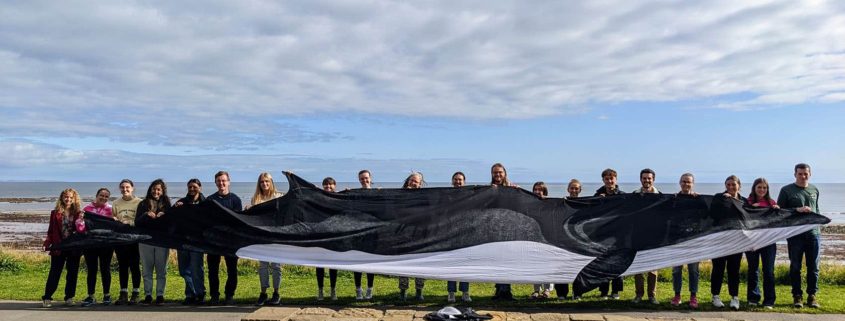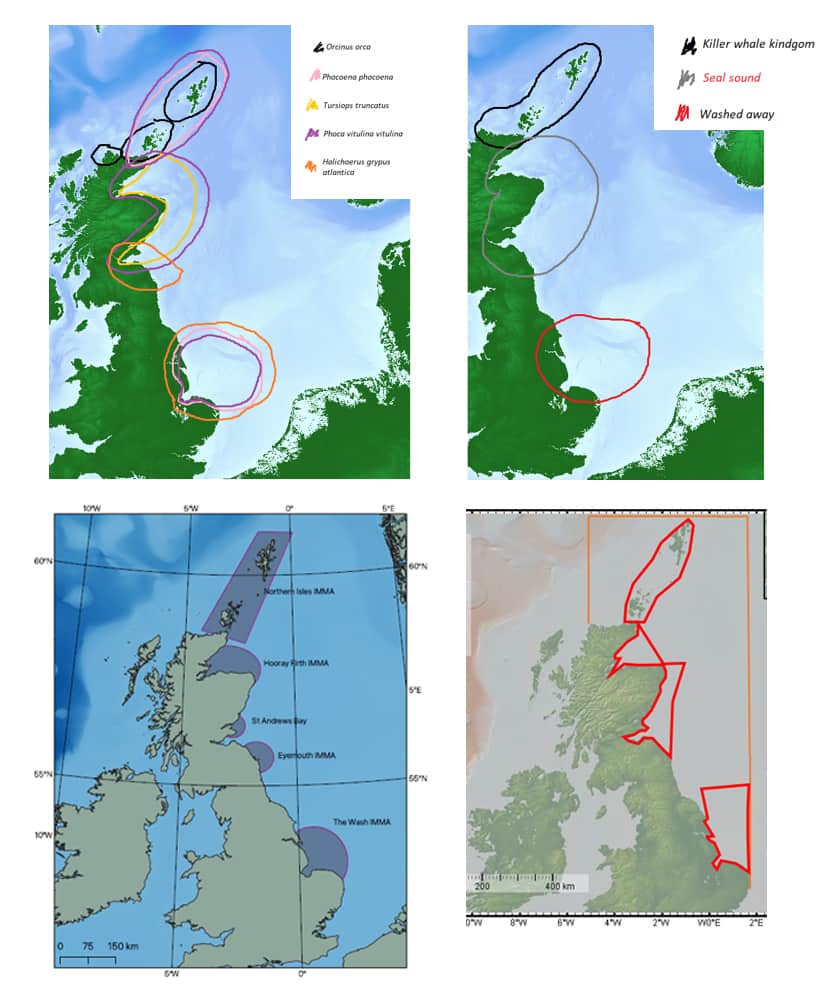
Students participating this year in the Marine Mammal Science MSc course at the University of St Andrews, Scotland, are trying their hand at identifying Important Marine Mammal Areas (IMMAs) in the North East Atlantic Ocean.
In March, Gill Braulik from the IMMA Secretariat held a half-day workshop with the students to teach the basics of the IMMA programme and to explain the criteria and review process.
Some 18 young marine mammal scientists from various countries, then split into working groups to propose preliminary Areas of Interest (pAoI) for the waters surrounding the north and east coast of the UK including the western North Sea, Shetland and Orkney. After compiling the list of species that occur regularly in the area to be considered, they evaluated the scientific data on marine mammal distribution, abundance, habitat and life history. They then proposed five candidate IMMAs (cIMMAs) for species including the common bottlenose dolphin, harbour porpoise, killer whale, harbour seal and grey seal. Consensus was that three of the proposed areas have a strong basis for consideration as cIMMAs, and that these three areas will be submitted as pAoI for consideration at the coming North East Atlantic IMMA workshop to be held in Hamburg in late May.
To date, 209 IMMAs have been identified through 67% of the world ocean. The call for the submission of pAoI for consideration as cIMMAs for the upcoming five-day Hamburg workshop has recently been issued and potential areas are being submitted by scientific experts. The workshop will then agree on the cIMMA submissions to be put forward and complete the cIMMAs for peer review. It is hoped that by the end of 2023 the accepted IMMAs will be able to be included in the online IMMA e-Atlas.
Find out more about the University of St Andrews’ Marine Mammal Science MSc course here.



 Patrick Lyne, IWDG
Patrick Lyne, IWDG